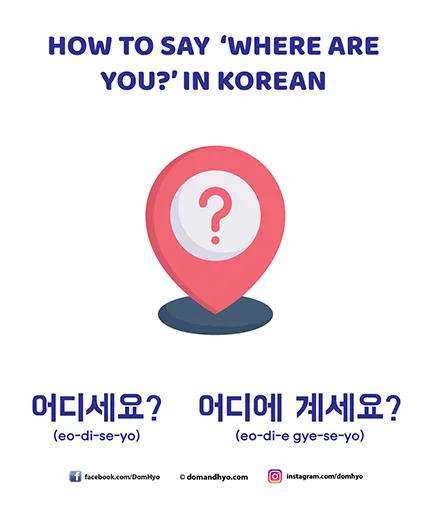
Looking for someone because you’re in a hurry? Waiting to meet a friend and need to ask why they’re late or why they haven’t shown up? Then let’s learn a useful phrase for these situations today.
Depending on the age of the person you’re talking to, and the particular situation, there are a few ways to say this phrase.
Informal
If you’re addressing someone younger than you or a close friend of the same age, you would say:
어디야? (eo-di-ya)
This phrase uses the informal ending ‘야’ and it would be rude to use his form towards an older person, especially towards someone you don’t know well.
Formal
Next up, when you want to ask ‘Where are you?’ to people who are around the same age as you, but not familiar with, people slightly older than you, or in a work position higher than you, you could say:
어디세요? (eo-di-se-yo)
This form uses a slightly more formal ending. You can feel comfortable using this form in most contexts without sounding rude. If someone is okay with speaking in a lower tone, they will let you know afterward.
Honorific
This is a high form of politeness used towards bosses and other people in high positions. For these situations, you would use:
어디에 계세요? (eo-di-e gye-se-yo)
This uses the conjugated form of the honorific verb ‘계시다’ which means ‘to stay’ or ‘to be’.
Finally, another form you might see is:
어딨어(요)
This is short for 어디 있어요, which is more commonly used for objects, but if you’re pretty close with someone you could use this as well.
언니 어딨어? (eon-ni eo-di-sseo) = Eonni where are you?
One thing to remember is that Korean has lots of grammar structures so you could actually say these phrases 30 different ways including past, present, and future tense. For now though, just stick with these and as you keep learning, you’ll come across the different structures naturally, and you’ll probably already recognize what they mean by context.
